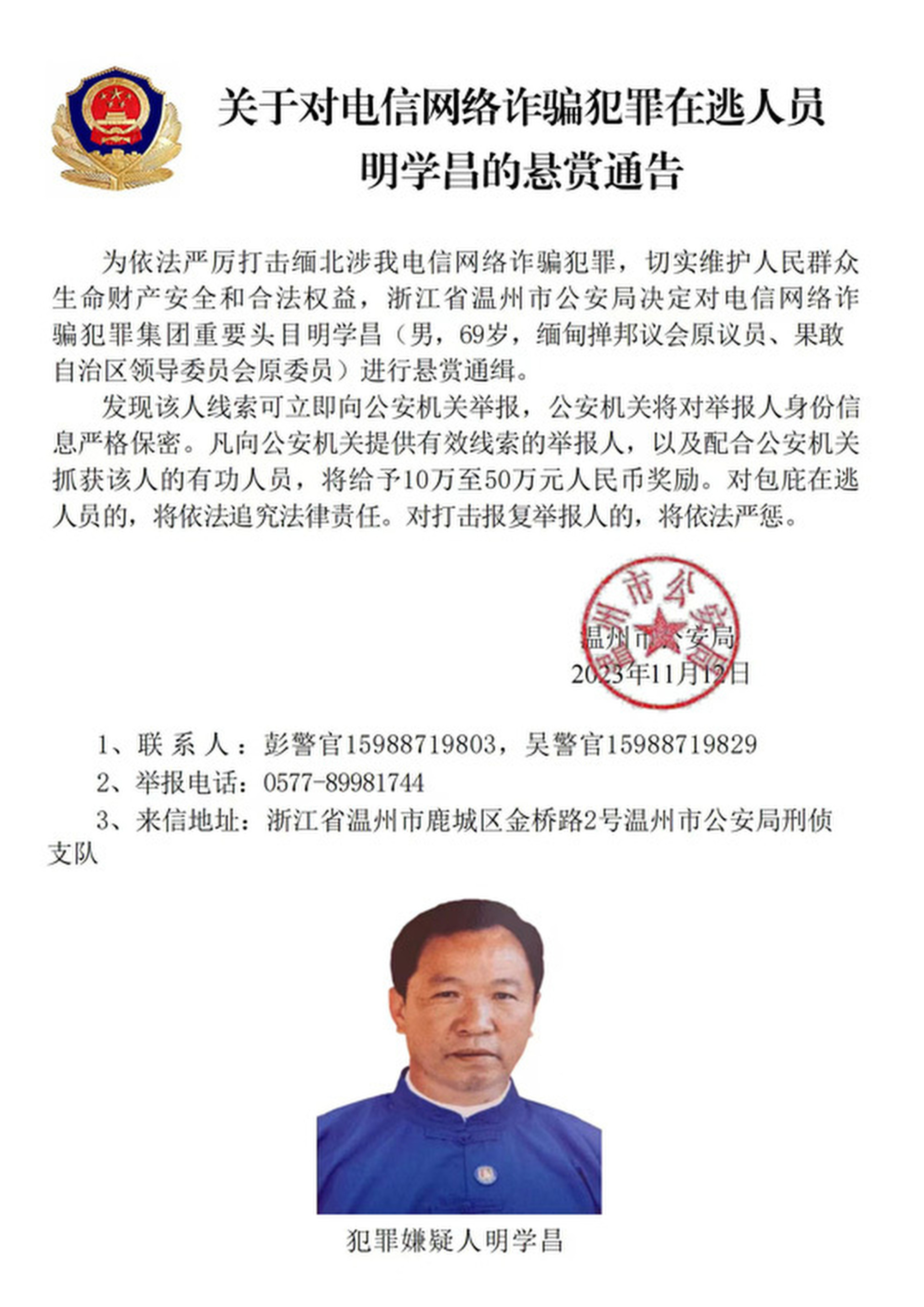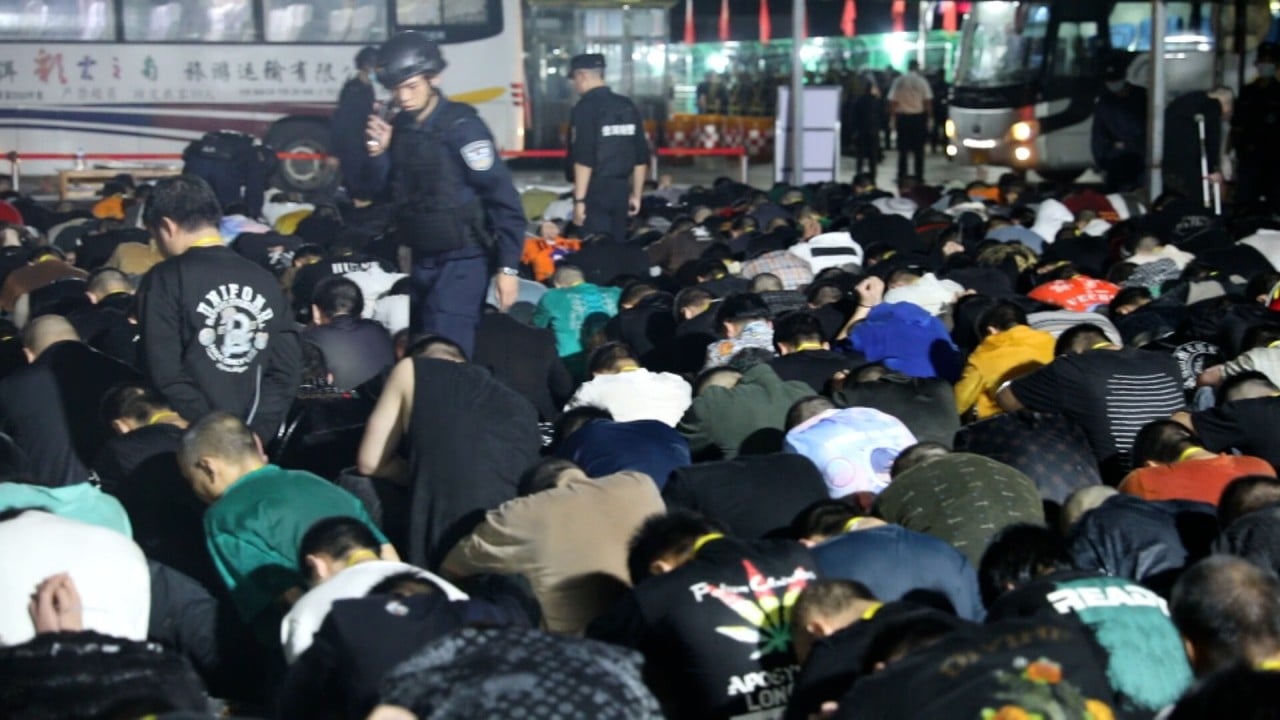Opinion: How the Chinese authorities can build on the crackdown on the Golden Triangle’s five families
[ad_1]
Three of the four big families had been supporters of Peng Jiasheng, or Pheung Kya-shin – the leader of the ethnic Chinese rebel group Myanmar National Democratic Alliance Army (MNDAA) – before they defected to the junta in 2009 and formed the Kokang Border Guard Forces under the command of the Tatmadaw, Myanmar’s military rulers.

Myanmar police said Ming – who ran the infamous Crouching Tiger Villa, one of the biggest telecoms scam compounds in the region – had shot himself. They have also handed over his two children and a grandchild to the Chinese authorities.
The arrest warrant from Wenzhou police accused Ming of murder, but so far Beijing has not commented on rampant online speculation that he had ordered the death of undercover agents trying to rescue Chinese nationals from criminal gangs.
Other alleged kingpins have also been detained in the crackdown, including Liu Zhengqi, boss of the biggest corporation in the region, the Fully Light Group, and brother of Liu Zhengxiang, the head of one of the four big families .
Videos circulating on Chinese social media have also shown several key members of these families reading out nearly identical “confessions” saying they should not engage in fraud targeting Chinese nationals.
Chinese internet users have compared the arrests to the downfall of golden triangle drug lord Naw Kham, who was executed in 2013 along with three subordinates over the massacre of a Chinese ship’s crew on the Mekong.
Beijing should now take the opportunity to further rein in criminal activity in the region. For example, with fighting between MNDAA and the junta ongoing in Kokang, Beijing should use its influence to rein in methylamine production and trafficking no matter who wins.
The rebel group has denied accusations by the junta that it funds its insurgencies through drug trafficking, though the organisation reportedly has a long history in the trade. On the other hand, the country’s military rulers have long been accused of turning a blind eye to trafficking to gain support from militias.
Beijing should also target criminal syndicates that operate across the border under the cover of legitimate business activities.
For example, Liu Zhengqi was reportedly arrested in Yunnan after crossing the border for a business event in his role as head of the Fully Light Group. This is something he had been doing for years, and he has previously been covered in the Chinese media as a legitimate businessman and donor to local charities.
China demands border security guarantee from Myanmar as rebels gain ground
China demands border security guarantee from Myanmar as rebels gain ground
The Chinese authorities could also target the five families’ associates within their own borders, such as the cybercrime syndicate from Fujian province which, according to The Beijing News, rented the Crouching Tiger villa.
Having said that, Beijing has been actively working with Thai police and the United Nations to clamp down on drug trafficking in the golden triangle in recent years. However, the latest success by Beijing shows it has the capability to do even more. After all, Myanmar is key to China’s Belt and Road Initiative.
[ad_2]
Source link






